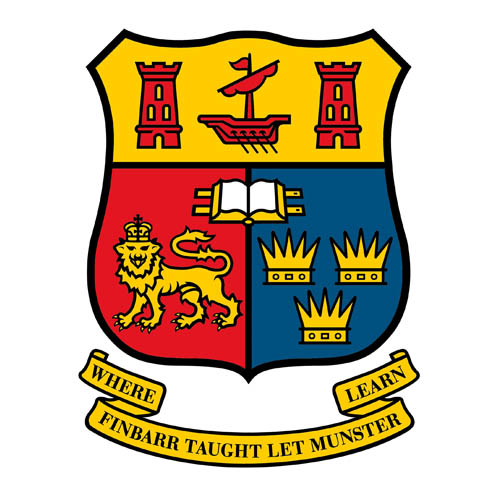Programme: Cork City
WHO Theme: Community Support and Health Services, Respect and Social Inclusion, Social Participation
Cost: 500 – 1000
Status: Ongoing
Description
The Cork Learning Neighbourhoods initiative brings the UNESCO UIL Learning City concept to neighbourhoods across Cork City, benefiting communities by promoting and developing lifelong learning opportunities. This initiative supports local networks and organizations in showcasing and enhancing educational resources.
Currently, Cork City has seven Learning Neighbourhoods. These areas experience educational disadvantages, with lower levels of tertiary qualifications compared to other parts of the city. The Learning Neighbourhoods initiative helps local communities form coordination groups that celebrate existing educational efforts and introduce new learning opportunities. These groups collaborate with residents, organizations, and businesses to offer engaging and diverse learning experiences.
We are nominating the ‘Neighbourhood University College,’ programme which was launched by the Mayfield Learning Neighbourhood in 2022.This free, 8-week, part-time course was developed to provide participants with a taste of various community, further, and higher education subjects in a convenient local venue. Prior to the course, research is conducted within the community to identify subjects of interest. The lecturing team includes educators from community education, FET colleges, and higher education institutions. Over the course’s duration, participants explore eight different subjects. The program concludes with a visit to local colleges and universities, where participants tour the campus and attend an information session on educational pathways. Due to the overwhelmingly positive response to the programme, the programme has been delivered a further nine times across various Learning Neighbourhoods.
The programme is open to all irrespective of previous academic qualifications. Over 80% of participants on the programme are aged 55 and older which has been a hugely positive outcome in supporting lifelong learning across communities in Cork City. At the conclusion of each programme, a ceremony takes place to award all participants with a certificate of completion to honour their participation and to highlight their role in supporting lifelong learning in the community.
Aim of Initiative
The aim of the ‘Neighbourhood University College’ programme is to provide accessible, part-time educational opportunities to community members, offering a diverse range of subjects and fostering lifelong learning. By doing so, it seeks to engage participants, particularly those who face educational disadvantages, in continuing education and to inspire them to pursue further educational pathways.
Through programme evaluation, participants have reported that the programme has supported supported social connections, reduced feelings of isolation, enhanced feelings of self esteem and increased their awareness of further learning opportunities all of which reflect the aims of lifelong learning.
Who is it aimed at
This initiative is aimed at adults in Cork City, particularly those in communities facing educational disadvantages. It targets individuals who have lower levels of formal education, providing them with opportunities to engage in lifelong learning. The program especially benefits older adults, with a significant focus on participants over the age of 55, by offering free, accessible, part-time courses that cater to their interests and needs.
3 Steps critical to success
- Working with the community on the programme development has been a key to the success of the programme.
Strong involvement from local residents, organizations, and businesses fosters a supportive environment and enhances the programme’s relevance to the community. The communities are at the centre of the programme planning and content development. The programme’s focus on providing a variety of subjects based on community interests ensures that it meets the needs and preferences of participants. The programme’s delivery in an accessible, local venue supports inclusion of those who may not have the means to travel outside of their local area.The programme is free of cost which prevents financial barriers for participants. - Drawing lecturers from community education, FET colleges, and higher education institutions ensures high-quality instruction and diverse perspectives. The lecturing team are conscious of the needs of the Adult Learner in the community and lecturers work to provide accessible delivery of content. Collaborations with local colleges and universities for campus visits and educational pathway sessions expand participants’ horizons and provide tangible progression routes for people. The campus trips also supports social inclusion as participants have the opportunity to visit a space where they could have previously felt excluded from.
- A key to the success of the ‘Neighbourhood University College’ programme is the continuous feedback and evaluation which allow for adjustments and improvements based on participant experiences and suggestions, ensuring the programme evolves to meet changing needs. The community are the key stakeholders in the delivery of the programme.
3 Challenges in Planning / Delivery
- Financial Sustainability: Securing ongoing funding to keep the programme free for participants, especially amidst fluctuating budgets.
- Participant Recruitment and Retention: Attracting a diverse range of participants and maintaining their engagement throughout the 8-week programme, particularly those who may face logistical or personal barriers to attendance.
- Resource Management: Effectively managing resources such as venue availability, lecturer availability,instructional materials to ensure smooth program delivery and meet the diverse needs of participants across different neighbourhoods.
3 Outcomes / Benefits
- Increased Engagement in Lifelong Learning: Participants develop a renewed enthusiasm for learning, exploring new subjects and expanding their knowledge base beyond their prior educational experiences. Participants are encouraged to enjoy the learning experience at any age.
- Enhanced Social Connections and Community Cohesion: The programme fosters strong community bonds among participants and encourages further learning pathways in a variety of organizations, creating a supportive environment for continued learning.
- Empowerment and Confidence Building: By gaining new skills and knowledge in a supportive setting, participants experience increased confidence in their abilities, which can lead to improved personal and professional opportunities. Most participants on the programme had no previous third level education and felt empowered by participating on the programme.
Contact:
Email:

